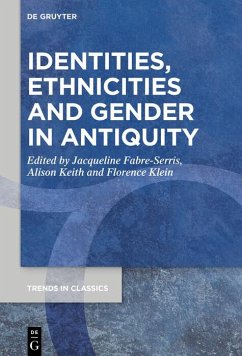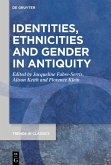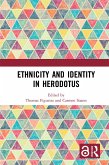The question of 'identity' arises for any individual or ethnic group when they come into contact with a stranger or another people. Such contact results in the self-conscious identification of ways of life, customs, traditions, and other forms of society as one's own specific cultural features and the construction of others as characteristic of peoples from more or less distant lands, described as very 'different'. Since all societies are structured by the division between the sexes in every field of public and private activity, the modern concept of 'gender' is a key comparator to be considered when investigating how the concepts of identity and ethnicity are articulated in the evaluation of the norms and values of other cultures. The object of this book is to analyze, at the beginning Western culture, various examples of the ways the Greeks and Romans deployed these three parameters in the definition of their identity, both cultural and gendered, by reference to their neighbours and foreign nations at different times in their history. This study also aims to enrich contemporary debates by showing that we have yet to learn from the ancients' discussions of social and cultural issues that are still relevant today. J. Fabre-Serris, University of Lille, France; A. Keith, University of Toronto, Canada; F. Klein, University of Lille, France.
Dieser Download kann aus rechtlichen Gründen nur mit Rechnungsadresse in A, B, BG, CY, CZ, D, DK, EW, E, FIN, F, GR, HR, H, IRL, I, LT, L, LR, M, NL, PL, P, R, S, SLO, SK ausgeliefert werden.









